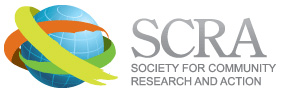Submitted by: Janelle M. Silva & Las Gatas
Highlights
Latinx high school students co-create and co-lead a course focused on identity and social action.
────
Las Gatas provides an example for others creating transformative educational opportunities for marginalized students.
A strong partnership between students, their high school, and a researcher can create change on campus through a collective process. Students co-designed and co-led Soy Yo, a high school elective course for LatinX girls. It is the first identity-centered elective course in the school that focuses on identity and social action.
“By developing a course, the students created action on their campus. Students can advocate for themselves and can co-design a class for students like them.”
Located in the Pacific Northwest, Nest High School centers student voice and experience, evident in the numerous affinity-based clubs and projects designed by students themselves. Sixteen LatinX students (who named themselves “Las Gatas”) advocated for an elective course for themselves that integrated their own lived experiences, allowed them to explore their identities, and developed potential community projects to help other LatinX students entering their school. Las Gatas frame their process as an act of decolonization; of “un-learning” how students are supposed to act in school and challenging dominant practices in education.
Written from one collective voice, Las Gatas describe how they petitioned for the class and engaged in Youth Participatory Action Research (yPAR) through the development of a collective syllabus, contesting dominant class power structures through course design and classroom structure, and confronting the school administration to ensure sustainability of the course.
Methods
This project uses yPAR methods with an emphasis on decoloniality. In yPAR, students are the experts and lead the process; identifying what to learn and determining how to approach, study, and address the problem. Decoloniality, or the decolonial project, moves away from dominant ways of knowing to allow diverse voices and perspectives to be amplified.
How Did A Community Psychology Perspective Inform Your Work?
Person-environment fit is emphasized in Community Psychology. If the environment is not working for all, we should consider how to change it guided by the perspective of those in that environment. This is the approach we took in this project. We worked collaboratively in designing the course, presenting the course to campus administration, and advocating for the importance of classes like Soy Yo at Nest High School. Community Psychology helped us consider how to integrate student voice and skills and how to expand projects like Soy Yo for other students on campus.
Results
- Youth Participatory Action Research can be an effective tool for engaging high school students who provide critical insider perspectives about their schools.
- Student-designed and student-led action projects engage students in their school community and help build their skills as leaders.
- Students from marginalized communities benefit from yPAR projects because it emphasizes the skills and knowledge not often valued in mainstream education.
What Does This Mean For?
Research and Evaluation: It is important to consider “who” is asking the questions. Student perspectives and voices should be incorporated throughout the research design process and in the evaluation. Students should be treated as researchers and projects should develop their skill sets.
Practice: How do researchers working in the K-12 system integrate themselves in the school environment? Are they working with and for the students or with and for the school administration? The transparency of purpose is vital for the ethical practice of Community Psychology.
Original Citation: Silva, J. M. & Las Gatas. (2021). Here to stay: How we created a movement toward decolonizing our high school. Special issue on racial justice and anti-racist practice by the Community for Ethnic and Racial Affairs (CERA) in the Global Journal of Community Psychology Practice.



